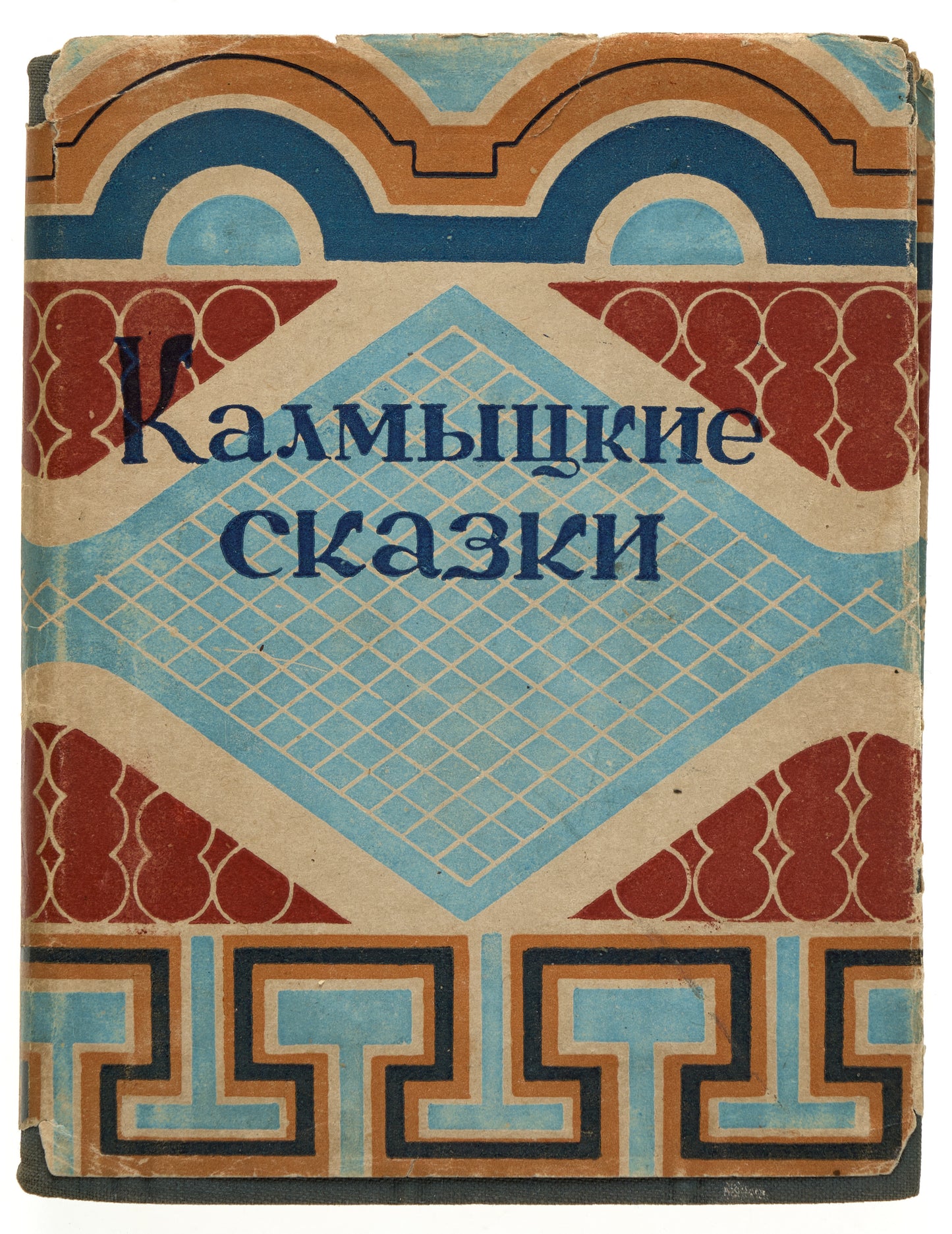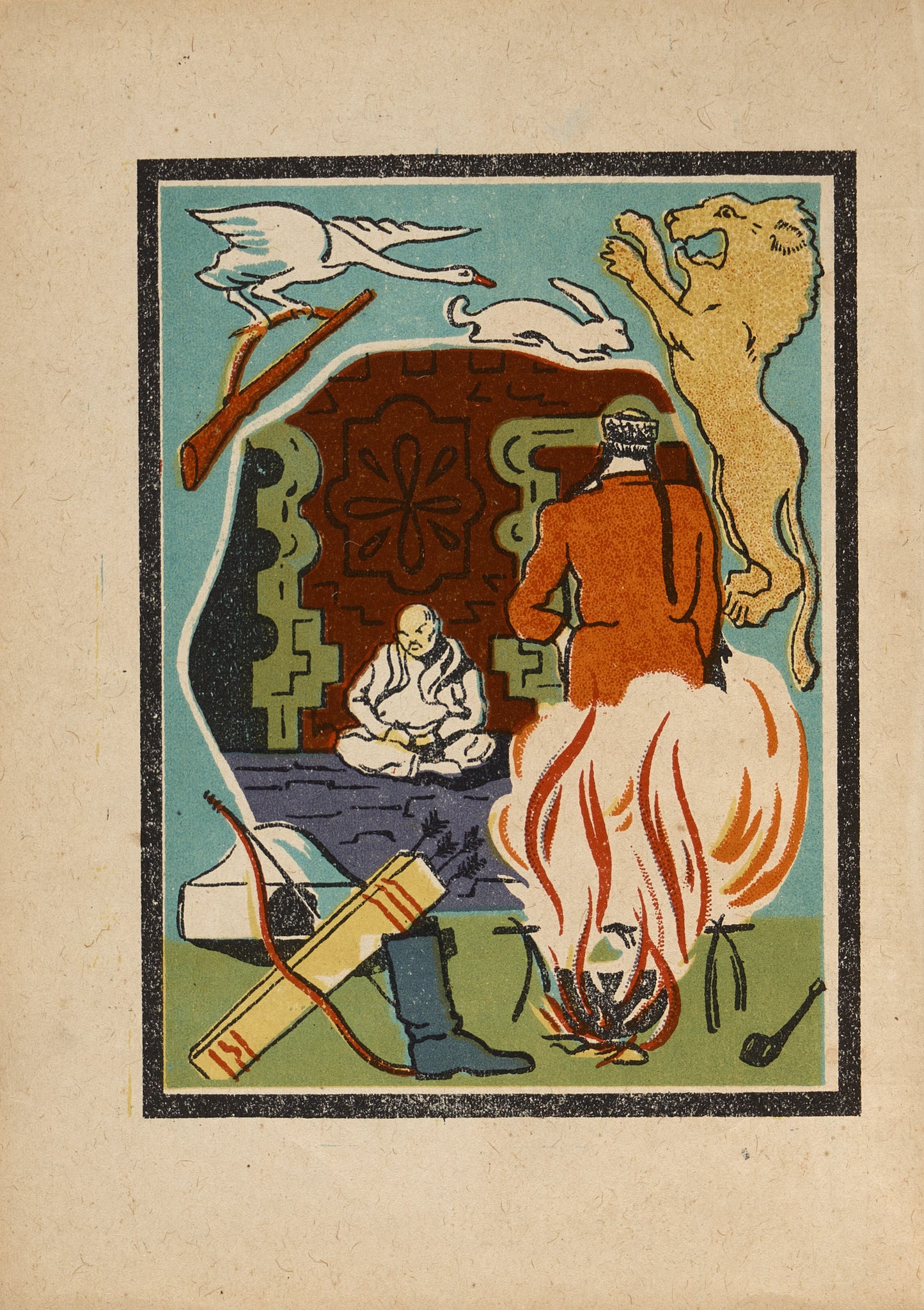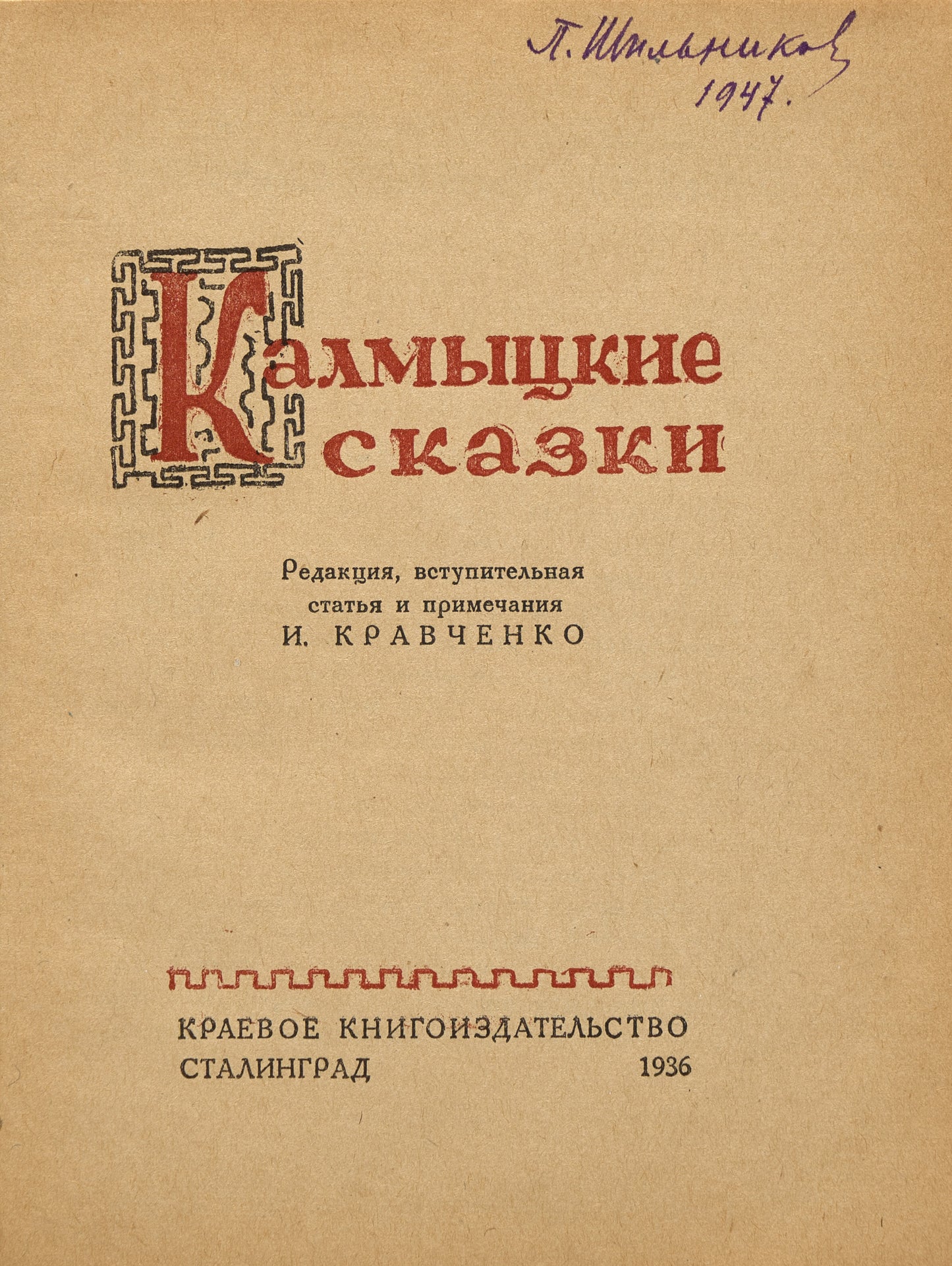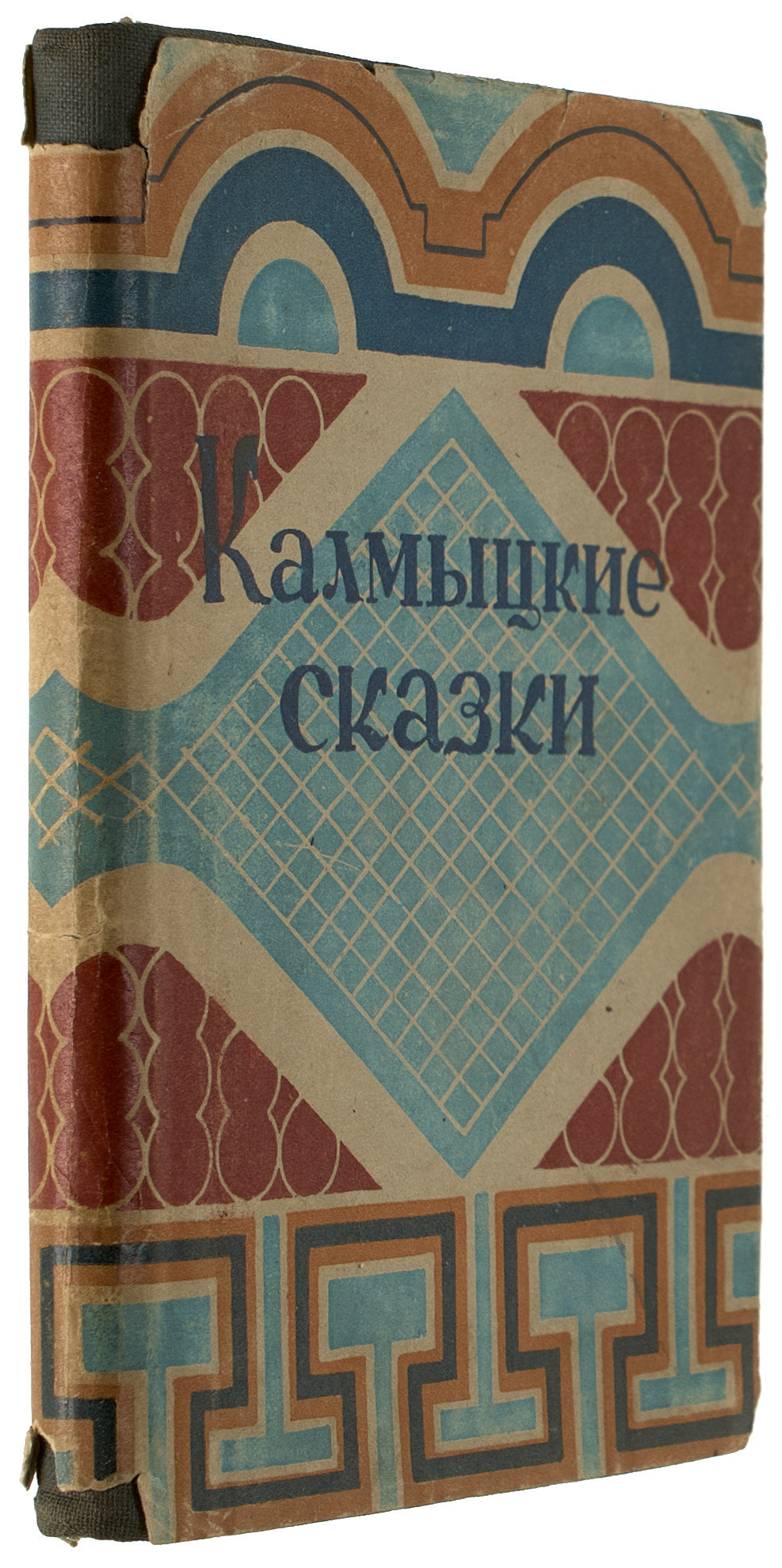Kalmyk Tales. Rare provincial edition.
Kalmyk Tales. Rare provincial edition.
Couldn't load pickup availability
[Kalmyk Tales]. Kalmytskie Skazki.
General editing by Andzhur Purbeev. Edited, with an introduction and notes by I. Kravchenko.
Dust jacket, binding, vignettes, and illustrations by K. Dmitriev.
Stalingrad, Kraevoe knigoizdatelstvo, 1936.
12mo, 232 pp., [6] l.ill.
In original black cloth with gilt stapled to front board and pictorial dust jacket. Illustrated endpapers.
In good condition, losses to dj spine and corners, front hinge cracked, owner signatures on title page and back endpaper, bookstore stamps to back endpaper and dj.
Rare provincial edition. Banned edition. One of 5 000 copies published.
The 1930s were notable for extensive folklore collection efforts across the USSR, including among the Kalmyks, a distinct people of Mongolian origin and the only Buddhist ethnic group in Europe. During this period, Kalmyk tales were frequently published in periodicals and included in various collections and study guides.
This collection features 19 tales, each accompanied by detailed notes, such as the source, location, date of recording, first publication information, and additional comments. Seven tales are published in this collection for the first time: ‘The Legend of the Khan and the Russian Peasant’, ‘The Legend of How Edg Took Over the Kingdom of Khan Dzhanym’, ‘About Khan Tsetsen and His Wise Daughter-in-Law’, ‘The Hero Mazan’, ‘The Seven Hairless and One Short-Haired’, ‘Kedia’, ‘Turnta’. The collection also includes the first full version of '71 Tall Tale' and the first Russian translations of 'Changing Times' and 'The Fox, the Wolf, and the Hare'. Most of the tales published for the first time were recorded and translated into Russian by Ulumdzhi Dushan (1892–1974), a significant folklorist and physician. He gathered these stories from his mother, who was a performer of fairy tales.
The preface was written by Andzhur Purbeev (1904-1938), a Kalmyk party activist and Chairman of the Council of People's Commissars of the Kalmyk ASSR at the time of book publication. He was later arrested and executed during the Great Purge, partly for his involvement in publishing the Kalmyk 'Jangar epic'.
In December 1943, over 93 000 Kalmyks were forcibly relocated to labor camps in Siberia and Central Asia, accused of collaborating with the Axis powers during World War II. This was part of broader Soviet population transfers affecting millions of ethnic minorities. The Kalmyks were rehabilitated in 1956 under Khrushchev and allowed to return to their homeland in 1957, with Kalmyk folklore publications resuming in 1960.








